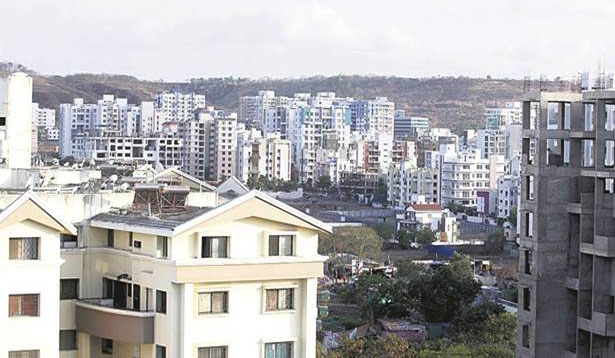By I C Naik
Housing society management in Mumbai is a different ball game as compared to management of other organizations. Very scarcely appreciated fact housing societies are managed by their own members elected by themselves. They undertake management responsibility purely voluntary. Ever since the responsibility of conducting all elections to management committees in cooperative societies was centralized in a State Cooperative Election Authority as per the Constitutional mandate effective 14 2 2013 most housing societies were having a turbulent time in constituting their Committees. Even filling up casual vacancies, the most common feature of housing society management, needed election supervised by the people deputed by this Authority. The realization that it was unwise to have accepted this tumultuous challenge only from March 9, 2019 the State Government reverted all elections to smaller housing societies (less than 250 members) to general body meetings. Having lived with this simple process, for several decades the State Bureaucracy is going to write a fresh rules of the in house elections. See proviso to Section 2 of the Maharashtra Cooperative societies (Amendment) Act 2019 reading as under:
“Provided further that, in case of housing society having less than or up to 250 Members, the election of the Committee shall be conducted by the said housing society in the manner as may be prescribed”
Apparently the bureaucracy is not ready with the Rules for implementing this change which was already in vogue earlier. The elections and filling up casual vacancies is to hold officially till December 31.
Now you have this confusing diktat from BMC empowering the Management Committee of Housing Societies to levy penalties on members for failing to conduct this segregation. One can certainly dislike such interference from State Agencies which have no say in the relationship of members and the management of Cooperative Societies as the same is regulated by and under the MCS Act. There is a scheme of imposing penalties on members with a view to maintain predefined discipline. It is mandatory to have bye-laws registered by every society at the time of its registration under MCS Act. The areas of the bye-laws are listed in Rule 8 of the MCR 1961. Section 9 of MCS Act mandates that “the proposed by-laws are not contrary to this Act or to the rules” and to verify this is the duty of the Dy. Registrar before registering a cooperative society. The Commissioner for Cooperation and the Registrar of cooperative societies has a practice to recommend Model bye-laws from time to time and especially soon after the statutory provisions i.e. the sections of MCS Act and the Rules under the MCR 1961 undergo significant changes. Appeal is also made by him through advisories to all housing societies to adopt the new Model. Since the bye-laws are contracts inter se the members there is no compulsion to adopt the latest model though it helps management in compliance management if latest model is adopted.
The BMC Circular [ see extract below] reportedly creates an impression that the BMC has a power to empower the Management Committee of a Housing Society to fix fine for failure to segregate the waste.
“A circular dated September 24, a copy of which is with TOI, says BMC is empowering office-bearers of all housing societies to issue notices to those apartments that do not consistently segregate waste as mandated under the Solid Waste Rules, 2016. “
The managing committee shall also pass a resolution under the Maharashtra co-operative housing society bye laws or relevant rules governing the housing society bye laws and impose financial penalty on defaulters as per the consensus of members,” it adds.
Report also raises a red alert to potential disputes inter se the membership and hence it is advisable that a proper procedure immune to potential disputes is followed by the Management Committee of every Housing Society.
In every model bye-laws (where a respective model having been adopted by members in their general body meeting and registered) is suitably modified and resolution for levying fine is passed. Bye-laws No 165 of the Model 2014 (all Model have similar provisions) is reproduced below:
“(a) The meeting of the General Body of the Society may prescribe penalties for different breaches of the Bye-laws of the Society. The Secretary of the Society, under instructions from the Committee, shall bring to the notice of the Member concerned, the breach/breaches of the bye-law/bye-laws committed by him. If the Member persists in continuing the breach/breaches, the Committee shall give the notice to the Member to showcause as why the penalty should not be inflicted on him for breach/breaches of the byelaw/bye-laws. The General Body Meeting, after considering the Say of the Member and after giving him hearing, may levy penalty to the extent of maximum consolidated penalty not exceeding Rs.5,000/- in any one financial year.
(b) Save except other provision in the Act, the A.G.M / Special G.B.M. can penalize a Member for committing breaches in his Responsibilities. Such penalty should be reasonable and equal to all such erring Members. A.G.M./Special G.B.M. is empowered to frame the penalty amount. The managing committee shall recover such penalties with proper care.”
In the Resolution of the general body meeting it may be clarified that pursuant to Waste management Rules 2016 every citizen has a responsibility to segregate the waste into liquid and solid and any failure on the part of any member shall render concerned member to pay fine of Rs 100 per every occasion noted by the staff of the society countersigned by the member concerned and any one member of the committee attesting as a witness”




















































